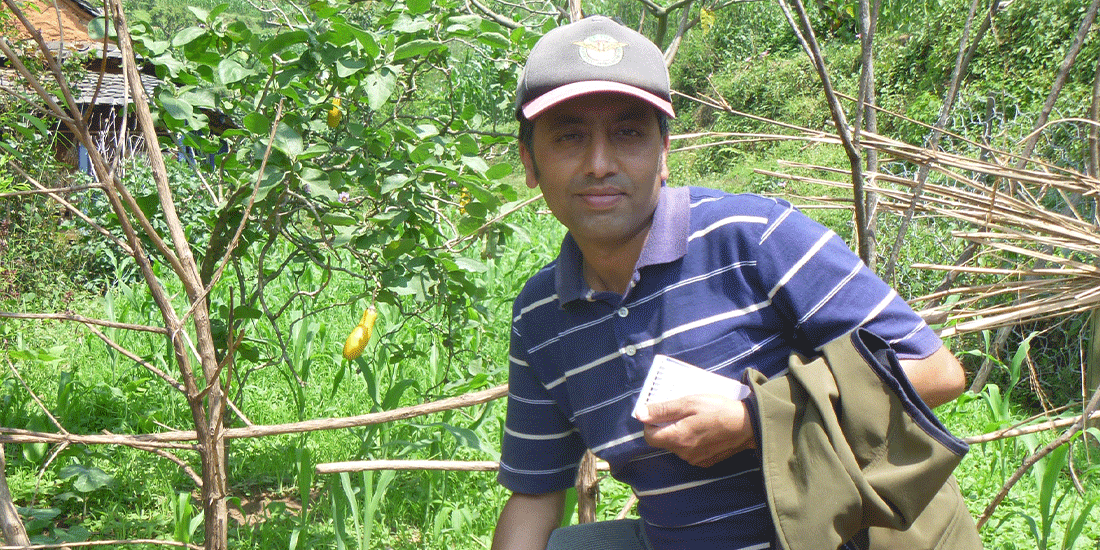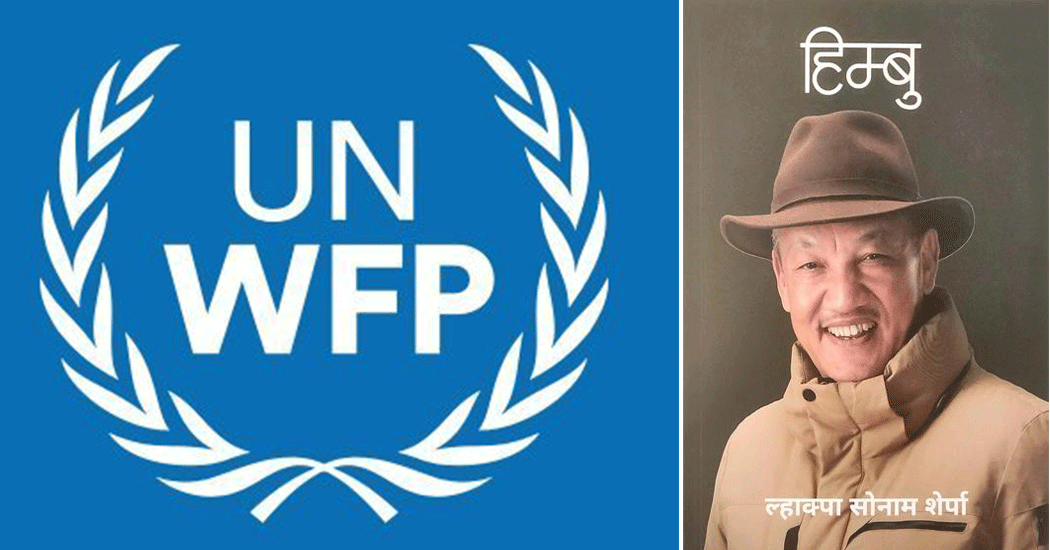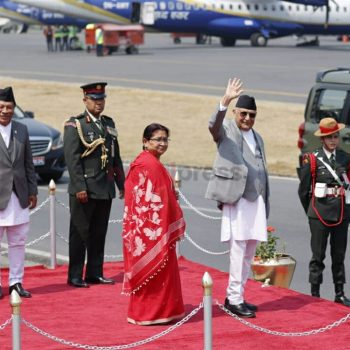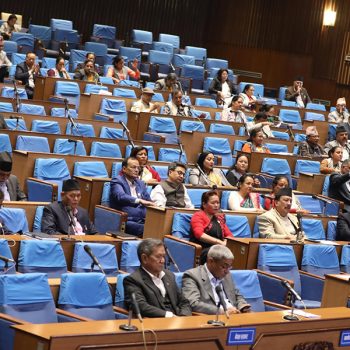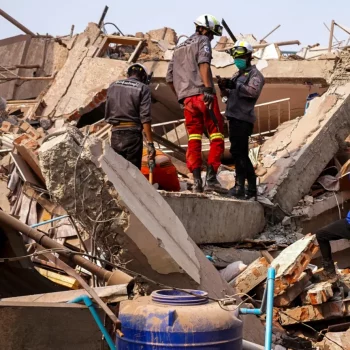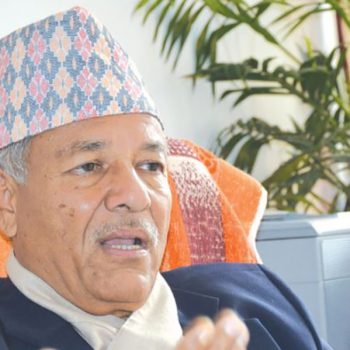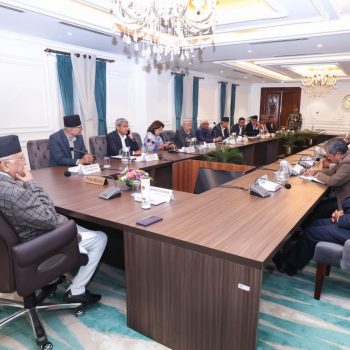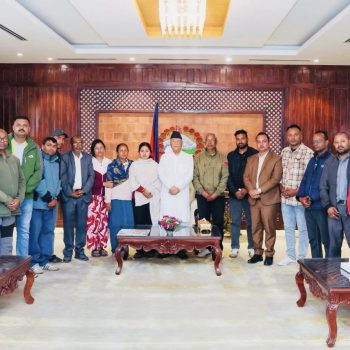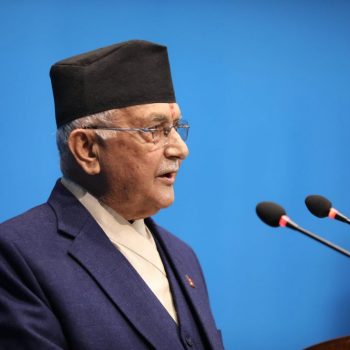‘We have to charge fees, but we will also fulfil all responsibilities.’
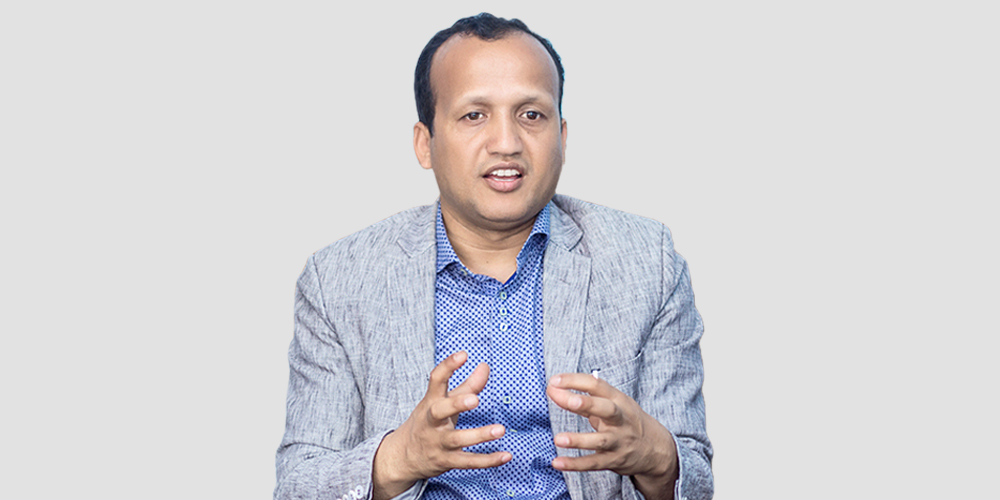
Most schools that were closed due to the COVID-19 pandemic have come into operation after about nine months. Some private schools had started teaching online. However, parents complained that the study was not effective and also that the schools charged high fees.
Private school administrators, though, did not accept the complaints.
Below is an interview with Lok Bahadur Bhandari, General Secretary of the Association of Higher Institutions and Secondary School’s Associations of Nepal (HISSAN), taken by Samarpan Shree of Nepal Press:
Schools are opening after 10 months. However, the risk of pandemics has not decreased. Would it be appropriate to open a school in this situation?
Yes. The risk of COVID-19 is not over. This is the concern of parents as well. However, schools have opened understanding the risks and fulfilling health safety standards.
Private schools have adopted all procedures for safety. Students will enter the school premises wearing mandatory masks. Admission to the school premises will be based on body temperature. Whether it is for sitting, walking or studying in the classroom, everything has been sanitized. Private schools are committed to ensuring that students are taught safely by adhering to health standards.
The schools have just opened, so how about the fees? Since when will they be charged?
The academic session counts for twelve months. We have been teaching online from the beginning. It is the responsibility of the parents to pay the fees. We have also understood the problems of some parents. But, they have to pay regular fees. How did schools function amidst this COVID-19 pandemic? This too should be taken care of. So, the schools must charge fees.
There are accusations by parents of schools charging high fees even when teaching-learning is not taking place. Is there anything you want to say about this?
This allegation is not of the parents, but of various organizations. Parents are sending their children to regular schools and enrolling them in classes. They understand how private schools are teaching. They have also paid the fees. We have also explained the problem to parents. Not everyone has the same problem.
Schools are not charging fees without conducting online classes. Parents have paid the fees realizing that regular attendance has been recorded and understanding that the academic session should not go to waste.
Many parents have lost their jobs due to the pandemic. Shouldn’t the school understand this and give exemption?
There is no reason to focus too much on fees. We have been highlighting ‘fees’, without paying attention to the school’s duties and services. It is a different story if you want to close down the schools. If schools are to be regular, they cannot not charge fees.
Since school is also a home for students, they have to be taken care of. Those who care for them should be prepared. Teachers, vehicles and even the infrastructures should be made ready to take care of the children. The school has done everything that needs to be done in terms of safety measures and precautions.
Even at this time, teachers are working hard, giving the same amount of time online. We have not made them sense deficiency or insufficiency in any way. Thus, looking at everything, there is no reason to emphasize fees only.
We should also charge fees listening to parents and their voices. I don’t think there is need to make too much noise.
Has the government said anything about this?
No. The government has not said anything about charging or reducing fees.
How effective are online classes?
In particular, children have taken this pandemic as an opportunity. Our kids are now becoming familiar with Information Technology. From the experience of online classes, students have learned new things about IT along with what is included in course books. This is new learning. Even when physically present, students’ reading skills and learning processes are different. Now, the school is moving forward in the same way. They will go to school more focused on the learning process. Teachers will also use what they have learned online as an opportunity.
Private schools and students in many places did not have access to the internet. How did everyone get a chance to learn?
I will not say that everyone has access and is capable. In fact, the state should have invested in this. The state should provide internet everywhere. Private schools cannot invest that much. If the state invests in IT, no child will be deprived of the opportunity to learn.
There is also controversy over the new curriculum for grades 11 and 12. Why such controversy and confusion?
We were teaching 5 subjects. Students are now required to study 7 subjects, including 4 compulsory and 3 elective.
At present, there are 4 compulsory subjects. Mathematics is necessary to study all subjects. It is also compulsory subject for medical studies.
There is no point taking too many things by force. After studying four compulsory subjects and 3 electives, students should study now 7 subjects.
Our belief is that students should study subjects they need. Our emphasis is on reducing the burden rather than increasing it. In other countries, only required subjects are studied. So, our students can also compete internationally.
It is not our motive to pressurize students by compelling them to study all subjects. Children of the poor have to stay in the village after studying seven subjects, or go to the Gulf countries for foreign employment. We have raised the issue that we should have courses according to international standards, not the kind of education we have in practice. Our belief is that the curriculum should be up to date, but too many subjects should not be mandated.
Are you trying to say that the new curriculum is not student-friendly and should not be implemented?
The course is student-friendly, but the subject matter is huge. It is not just about change, it is a matter of why it is necessary to make basic things mandatory. Rather, it is possible to have subjects as electives.
The court order and the decision of the government has to be obeyed. When the government makes a decision, it has to be carefully thought out. At present, this decision is only made by the Ministry of Education. The cabinet has not done so. Now, the cabinet has to make the decision. Ordinary employees should not be making decisions on such a sensitive issue. The decision should be made by the Council of Ministers.
What happens when it comes to academic sessions and exams?
11th and 12th grade exams were held, so we now have experience in this regard. Now, it is time to conduct examinations face to face.
Internal evaluation has failed in school practice. Students had to be ensured that they were assessed properly, which the internal evaluation system failed to do. Discussion on this matter is currently ongoing.
When will this year’s academic session end?
This is currently being debated. The Ministry of Education will discuss this.
What are your plans now?
The educational exhibitions that we have been doing every year have also come to a halt this time. Students used to get a lot of information from the educational fair. We are planning the next steps. We will continue various activities and programs, making them agile by giving concrete form to the organization. Many other plans are also being worked on.




